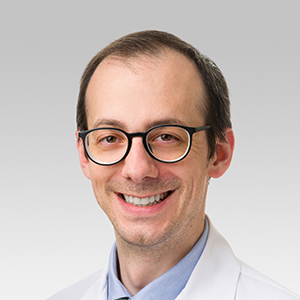
August 2023 Newsletter

August 2023 Newsletter

Faculty Profile
Jeffrey Goldstein, MD, PhD, is assistant professor of Pathology in the Divisions of Perinatal Pathology and Autopsy. For his research and clinical practice,he employs machine learning and bioinformatics to improve the health of pregnant women and their children, primarily through improved diagnosis and fundamental understanding of the placenta. He is also a member of the Center for Reproductive Science, the Institute for Artificial Intelligence in Medicine’s Center for Computational Imaging and Signal Analytics in Medicine and the Northwestern University Clinical and Translational Sciences (NUCATS) Institute.
What are your research interests?
Don't worry if you've never heard of placental pathologists — we're extremely rare. That causes a lot of problems. Most placentas aren't looked at by experts, and everyone is stretched thin. One area of my research interests is using machine learning to make it easier to make diagnoses faster and agree on them. The other problem in placental pathology is what you might call the Clue problem. We only look at placentas after the child is delivered and it’s hard to intervene. So, what's the point? Many people will get pregnant again, so there's often something we see in this placenta that can help next time. The other thing we think about is this idea of developmental origins of health and disease, which are things that happen when you're in the womb and will go with you your whole life. There are some very impressive findings, but it's also hard because you literally have to watch people for years and years to see what happens with them. I've also done work on COVID, and I'm interested in other infectious diseases during pregnancy, as well.
What is the goal of your research?
The ultimate goal of my research is to improve pregnancy, birth, and lifelong outcomes for pregnant people and their children. I approach that in a few different ways, one of which is to look at my clinical domain, placental pathology. The placenta is the in-utero life support system for the fetus. Most of the time it works very well, but there can be problems, and investigating it is what a placental pathologist does.
How did you become interested in this area of research?
I like development, genetics and the interaction between maternal and fetal. For machine learning, I've always enjoyed computers and I love the way we can put together data in surprising ways.
What types of collaborations are you engaged in across campus (and beyond)?
I work very closely with Lee Cooper in the Department of Pathology. Lee is an engineer and expert in machine learning and extraordinarily helpful in turning ideas into reality. Elisheva Shanes and Leena Mithal have helped with studying COVID and a lot of other things. I'm also working with a group at Penn State on placental machine learning, and another at Mayo.
How is your research funded?
I have a K08 award from the National Institute of Biomedical Imaging and Bioengineering and, of course, I'm on the hunt for more.
Who inspires you? Or who are your mentors?
David Aronoff at Indiana University has been a long-term mentor and is the kindest person I know. He's completely devoted to raising people up. It's easy to be very competitive, and he shows how to be successful in a different and positive way.